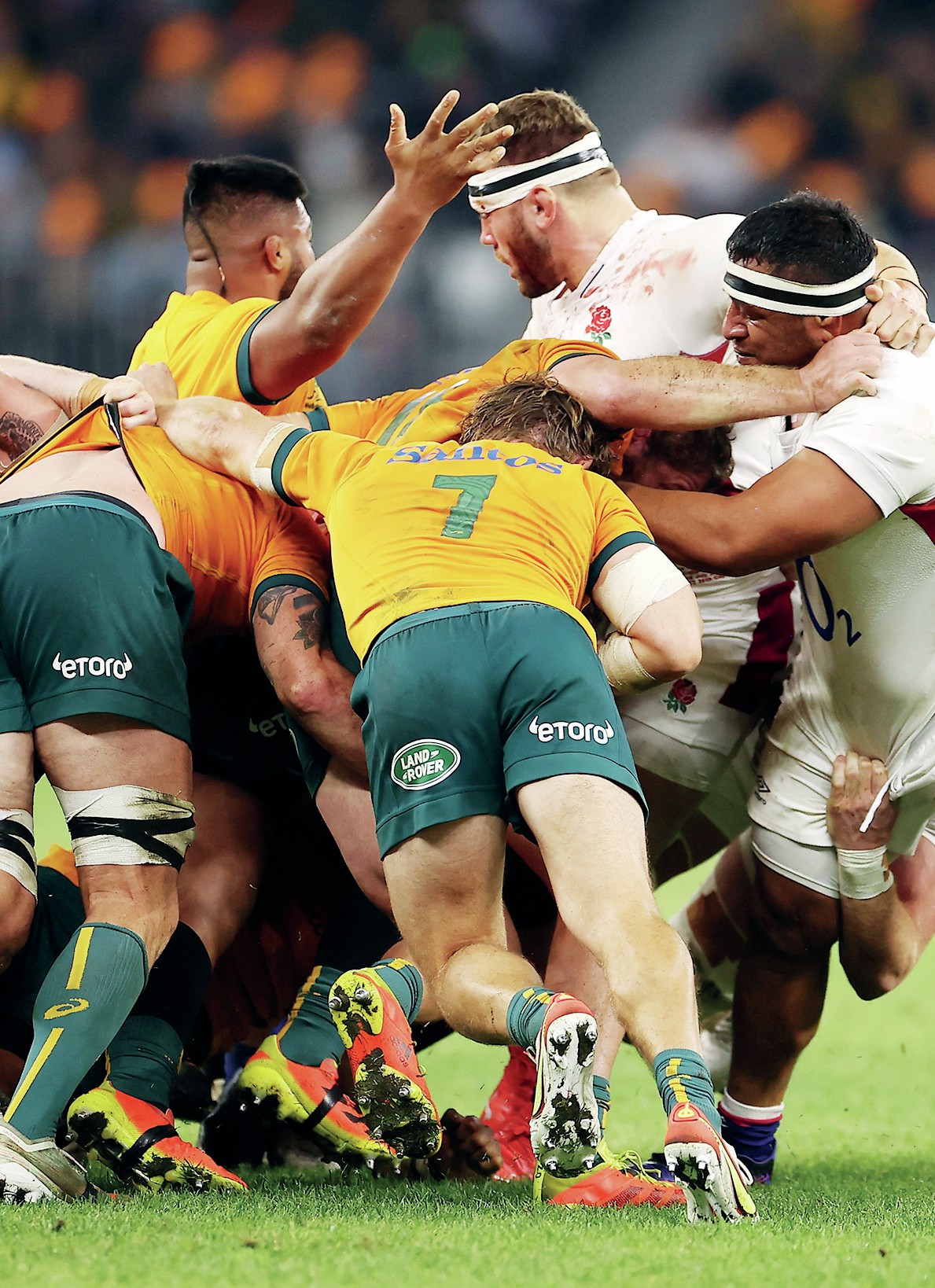Money is at the root of rugby’s problems

It was interesting to read David Campese's take on why today's game is so different and dared to say “the good old days” when we played the game differently.
I say “we played” but it was hardly against each other, although we were on the same pitch on occasions, as he never really came close enough to the forwards for me to get a hand on him – but as usual Campo, below right, made his point as we all looked on.
His opinions are about how despite the comments from World Rugby broadcasting that the game now is better with more ball in play time (which may be because they stop the clock, extending the time it takes to complete an 80-minute game to up to two hours) the game has degenerated into something else.
He feels it's gone from a game that seemed to flow from start to finish and describes it now as a stop/start fractured game that is frustrating not just to “old fart” players like us, but also for many of the coaches and the supporters.
Campo's theory is that the referees, assistant referees and the TMO now believe that they are the most important people in the game and seek to impose their presence at every opportunity and I feel to a certain extent he is right.
It is a fact that the referees etc. have always been the most important people on the pitch as it is they who control how the game is played and should enforce the laws of the game to help create a fair and fun game for everyone.
When we were playing it was our job to adapt our game to the way that the referee and his assistants wanted us to play. Yes, sometimes it was easier than others but we all knew that each referee had their own way of interpreting the laws so you either adapted or were penalised off the pitch.
As for wanting the spotlight, we had Clive Norling and Fred Howard and others, who were great referees and had risen to the top of the game and seemed to rather enjoy having the TV cameras focused on themselves rather than the game and the players.
However, referees like Steve Hilditch, Ed Morrison, Derek Bevan, Tony Spreadbury, Owen Doyle, Nigel Owens, Jim Fleming and many many more, were the embodiment of what it meant to control a game for the enjoyment of all and more than made up for the odd few with narcissistic tendencies.
As Campo intimated, it now seems that referees are blowing for a penalty virtually every minute or two of the match and issuing cards at the slightest suggestion of a hint of foul play, accidental or not. The statistics have proven him right with recent games seeing around 25-30 penalties per match compared with fewer than 10-15 during the amateur period.
The question should be; why has this change come about and why, despite World Rugby's insistence that the ball is in play for far longer than it was in the pre-professional days, does the game seem more fractured and boring?
To me the answer is simple. Money, as it is since payments arrived into the game, many of these changes have taken place. At the top of our game, players are no longer able to play the game they choose to and are obliged to follow the instructions of highly paid coaches if they wish to retain their contracts.
Referees are told to allow some laws to be broken to allow the game to flow but to make an example of even the slightest mistake in timing if it involves head contact or is seen as a deliberate act.
This in part is due to the long held feeling by World Rugby that in order to potentially increase audiences rugby needs to be easier to watch and for the punters to understand what is going on. Instead, all that has happened is that those of us who understand and are long term supporters of the game are just as confused by some of the referee's decisions as the first time viewers.
As a former prop, my first comments and thoughts will always be about the scrum, which seems to be no longer a competition and in fact has become more dangerous for its players with more collapsing and re-forms than ever before.
Then there is the put in, which even though it is now allowed to be put in down your side of the tunnel, is supposed to be put in straight. Not fed between the feet of your own front row allowing the hooker not to strike and reducing true competition for the ball.
Then there is the wheel which always results in a penalty even though the laws state the scrum should be reformed if it goes through 90 degrees, unless deliberately pulled. However, given the time it now takes to form a scrum it is probably a blessing that they don't otherwise we may well end up with a three hour game.
Ultimately, it seems as if World Rugby have taken away the empathy that referees used to bring to the game and have also broken the bond between the players and referees which has created a “them and us” culture and that's not good for the game or the fans.